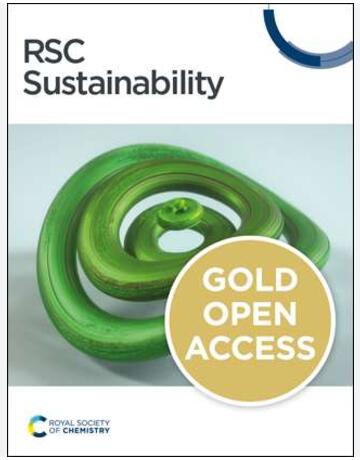腐败、经济自由和城市化对经济发展的影响:西巴尔干与欧盟27国
IF 3.3
3区 环境科学与生态学
Q2 ENVIRONMENTAL SCIENCES
引用次数: 20
摘要
近几十年来,人们从越来越多的角度讨论了经济发展问题,以确定对这一现象有重大影响的因素。确定因素并衡量其对经济发展的影响是采取必要公共政策的重要起点。针对西巴尔干国家的类似研究以及西巴尔干与欧洲联盟国家之间的比较分析数量有限。因此,本文的主要目的是实证检验2009-2018年期间腐败、经济自由和城市化对西巴尔干国家和欧盟国家经济发展的影响,为这两个群体提供比较分析。腐败感知指数、经济自由指数和城市人口增长被选为自变量,而人类发展指数的因变量代表经济发展。使用属于面板广义最小二乘法的随机效应模型,实证分析表明,腐败对经济发展有负面影响,而经济自由和城市化对这两类国家的经济发展都有积极影响。然而,腐败在西巴尔干地区的影响更具破坏性,与欧盟国家相比,他们似乎从经济自由和城市化中受益更多。所选自变量的影响是否仅限于人类发展指数的任何组成部分,特别是是否仅限于该组成部分,有待未来进一步研究,尽管本文的结果非常重要,并且与综述的文献一致。本文章由计算机程序翻译,如有差异,请以英文原文为准。
The Impact of Corruption, Economic Freedom and Urbanization on Economic Development: Western Balkans versus EU-27
The topic of economic development has been addressed in recent decades from more and more points of view in order to identify the factors with significant impact on this phenomenon. Identifying the factors and measuring their impact on economic development are essential starting points for adopting the necessary public policies. Similar types of research for the Western Balkan countries and comparative analyses between the Western Balkans and the European Union countries are limited in number. Hence, the main purpose of this paper is to empirically test the impact of corruption, economic freedom, and urbanization on the economic development for both the Western Balkan countries and the EU countries for the period 2009–2018 to provide a comparative analysis for these two groups. The corruption perception index, economic freedom index, and urban population growth are chosen as independent variables, whereas the dependent variable of the human development index (HDI) represents economic development. Using the Random Effects model, which falls under the Panel Generalized Least Square method, the empirical analysis suggests that corruption has a negative impact on economic development, while economic freedom and urbanization have a positive impact on the economic development for both groups of countries. However, the impact of corruption is more destructive in the Western Balkans, and they appear to benefit more from economic freedom and urbanization as compared to the EU countries. Whether the impact of the chosen independent variables is restricted to any component of the HDI in particular is left open for further studies in the future, though the results of this paper are highly significant and in accordance with the reviewed literature.
求助全文
通过发布文献求助,成功后即可免费获取论文全文。
去求助
来源期刊

Sustainability
ENVIRONMENTAL SCIENCES-ENVIRONMENTAL SCIENCES
CiteScore
6.80
自引率
20.50%
发文量
14120
审稿时长
17.72 days
期刊介绍:
Sustainability (ISSN 2071-1050) is an international and cross-disciplinary scholarly, open access journal of environmental, cultural, economic and social sustainability of human beings, which provides an advanced forum for studies related to sustainability and sustainable development. It publishes reviews, regular research papers, communications and short notes, and there is no restriction on the length of the papers. Our aim is to encourage scientists to publish their experimental and theoretical research relating to natural sciences, social sciences and humanities in as much detail as possible in order to promote scientific predictions and impact assessments of global change and development. Full experimental and methodical details must be provided so that the results can be reproduced.
 求助内容:
求助内容: 应助结果提醒方式:
应助结果提醒方式:


